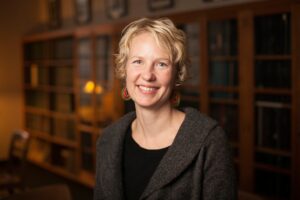28 April 2022 15:00-16:30 UK time (on Zoom) | Martin Schmidt & Johannes Thürauf (Universität Trier)
View a recording of the event here.
 Martin Schmidt studied Mathematics and Computer Science at the Leibniz Universität Hannover and received his PhD in 2013 in the area of algorithmic optimization. From 2014 to 2018 he was junior professor for the optimization of energy systems at the Friedrich-Alexander-Universität Erlangen-Nürnberg and the Energy Campus Nürnberg, before he moved to Trier University. His research interests are mixed-integer nonlinear as well as bilevel optimization. He develops novel algorithms for solving these problems for real-world and large-scale instances. His application focus is on the energy sector.
Martin Schmidt studied Mathematics and Computer Science at the Leibniz Universität Hannover and received his PhD in 2013 in the area of algorithmic optimization. From 2014 to 2018 he was junior professor for the optimization of energy systems at the Friedrich-Alexander-Universität Erlangen-Nürnberg and the Energy Campus Nürnberg, before he moved to Trier University. His research interests are mixed-integer nonlinear as well as bilevel optimization. He develops novel algorithms for solving these problems for real-world and large-scale instances. His application focus is on the energy sector.A bilevel optimization approach to decide the feasibility of bookings in the European gas market (Johannes Thürauf)
The European gas market is organized as a so-called entry-exit system with the main goal to decouple transport and trading. To this end, gas traders and the transmission system operator (TSO) sign so-called booking contracts that grant capacity rights to traders to inject or withdraw gas at certain nodes up to this capacity. On a day-ahead basis, traders then nominate the actual amount of gas within the previously booked capacities. By signing a booking contract, the TSO guarantees that all nominations within the booking bounds can be transported through the network. In this talk, we consider networks with linearly modeled active elements such as compressors or control valves. Since these active elements allow the TSO to control the gas flow, the single-level approaches for passive networks from the literature are no longer applicable. We thus present a bilevel model to decide the feasibility of bookings in networks with active elements. While this model is well-defined for general active networks, we focus on the class of networks for which active elements do not lie on cycles. This assumption allows us to reformulate the original bilevel model such that the lower-level problem is linear for every given upper-level decision. Consequently, we derive several single-level reformulations for this case. Besides the classic Karush– Kuhn–Tucker reformulation, we obtain three problem-specific optimal-value-function reformulations. The latter also lead to novel characterizations of feasible bookings in networks with active elements that do not lie on cycles. We compare the performance of our methods by a case study based on data from the GasLib.
 Johannes Thürauf is a postdoctoral researcher at the University of Trier since end of 2021. He studied Mathematics at the Friedrich-Alexander Universität (FAU) Erlangen-Nürnberg and received his MSc degree in 05/2017. Afterward, he worked as a PhD student at the FAU Erlangen-Nürnberg and got his PhD at the end of 2021. His research topics include optimization under uncertainty, network optimization with a focus on energy networks, as well as combinatorial and algorithmic optimization.
Johannes Thürauf is a postdoctoral researcher at the University of Trier since end of 2021. He studied Mathematics at the Friedrich-Alexander Universität (FAU) Erlangen-Nürnberg and received his MSc degree in 05/2017. Afterward, he worked as a PhD student at the FAU Erlangen-Nürnberg and got his PhD at the end of 2021. His research topics include optimization under uncertainty, network optimization with a focus on energy networks, as well as combinatorial and algorithmic optimization.
24 March 2022 (on Zoom) | Taraneh Sowlati & Sahar Ahmadvand (University of British Columbia)
View a recording of the event here.
Sustainable forest-based biomass supply chains (Taraneh Sowlati)
Forest-based biomass has been used as a renewable source to produce value-added products in bioconversion facilities. Its utilization to produce bioproducts has economic, social and environmental benefits. Generating addition revenue stream for the forest sector, reducing fossil fuel dependency and GHG emissions, and creating jobs in forestry-dependent communities are some of these benefits. However, there are challenges in utilizing forest-based biomass in many regions due to its low bulk density, high moisture content, low energy value, and seasonal and dispersed availability. These characteristics contribute to high preprocessing, handling, storage and transportation costs and make its supply chain complex and costly. Furthermore, variations in forest-based biomass supply quantity and quality, demand, costs and prices add additional complexity to its supply chain planning. In order to improve the competitiveness of forest-based biomass as a feedstock, supply chain management and optimization have been done in many previous studies. In this talk, the recent advances in sustainable planning of this renewable source at IERG will be presented.

Dr. Taraneh Sowlati is a Professor in the Department of Wood Science, Faculty of Forestry at the University of British Columbia (UBC). She leads the Industrial Engineering Research Group. Over the past decade, the focus of her research has been on biomass supply chains. Most of her current projects are related to utilizing forest-based biomass to generate value added bio-products and optimizing their supply chains. Her research involves evaluation of economic, environmental and social aspects of bio-based products and processes. She and her research group develop mathematical programming models and decision support tools to manage and optimize integrated and sustainable forest-based biomass supply chains considering uncertainties, risks, multiple viewpoints, and multiple criteria.
A robust optimization model for tactical planning of the forest-based biomass supply chain for syngas production (Sahar Ahmadvand)
Production of bioenergy and biofuels from forest-based biomass provides an economically and environmentally attractive use of an otherwise wasted material. However, from the collection to conversion, the supply chain of forest-based biomass is tainted with many challenges and uncertainties that impact its economic performance. In the literature, most papers focused on the long-term optimization of forest-based biomass gasification supply chains using deterministic models. In this paper, the supply chain of forest-based biomass for syngas production is optimized at the tactical level considering uncertainties. A robust optimization model is developed and applied to the real case of a large Kraft pulp mill in British Columbia, Canada. The total supply chain cost of the case study based on the robust optimization model is 67% higher than that of the deterministic model, however, the robust model provides a single optimal solution that is feasible for all parameter values within their considered uncertainty intervals.

Sahar Ahmadvand (B.Sc. and M.Sc. Industrial Engineering, Iran) is a Ph.D. candidate in the Industrial Engineering Research Group, Faculty of Forestry, University of British Columbia. Her research involves mathematical programming and uncertainty modeling for optimization and planning of the forest bioenergy supply chains.
24 February 2022 15:00-16:30 UK time (on Zoom) | Reprise of the Special INFORMS Session honouring the Inaugural Hotelling Medalists:
View a recording of the event here.
The slides of the speakers are also available: Oren — Weintraub
Benjamin F. Hobbs (Johns Hopkins University)

Shmuel S. Oren (University of California at Berkeley)

Andrés P. Weintraub (University of Chile)
Session chair: Alexandra M. Newman (Colorado School of Mines)

27 January 2022 15:00-16:30 UK time (on Zoom) | C. Lindsay Anderson & Vivienne Li (Cornell University)
View a recording of the event here.
Considering Electric Grid Robustness via a General Effective Resistance Measure (C. Lindsay Anderson)
Increasing interconnection of renewable energy resources in electric power systems introduces potential network vulnerabilities. In this work we consider a vulnerability measure that quantifies the impact on the system global frequencies, due to small local perturbations to a node’s natural frequency.
Complex networks are frequently used to model coupled dynamical systems ranging from interacting molecules in chemical reactions to high voltage electric grids We apply this framework to high voltage electric grids where each node corresponds to a voltage phase angle associated with a bus and two nodes are connected to another by an edge where there exists a transmission line that connects the busses in the physical system. Given a fixed complex network topology with specific governing dynamics, our framework finds an optimal allocation of edge weights that minimizes the vulnerability measure(s) at the node(s) for which we expect perturbations to occur.

C Lindsay Anderson (Ph.D. Applied Mathematics, University of Western Ontario, Canada; M.Sc. and B.Sc Eng. University of Guelph, Canada) is currently an associate professor and the Interim Director of the Cornell Energy Systems Institute and at Cornell University. Previously, Lindsay was the Kathy Dwyer Marble and Curt Marble Faculty Director for Energy with the Cornell Atkinson Center for Sustainability. Her research interests are the application of optimization under uncertainty to large-scale problems in sustainable energy systems, and has been funded by the National Science Foundation, US Department of Energy, PSERC, and the National Science and Engineering Research Council of Canada.
A Multi-Objective Adaptive Policy Search Approach for Microgrid Energy Management (Vivienne Liu)
Microgrids are emerging as an effective and adaptive infrastructure option to promote distributed energy resource (DER) integration, and to engage end-use customers in efficient and responsive energy use. A major challenge of managing microgrids is to identify energy dispatch strategies that accommodate multiple conflicting objectives from diverse stakeholders and are robust to the significant uncertainties confronting their operations. Our study adopts the Evolutionary Multi-Objective Direct Policy Search (EMODPS) method and modifies it to be a multi-agent multi-objective evolutionary algorithm reinforcement learning framework to handle the daily energy management problem. We quantify the performance tradeoffs between economic profit, environmental impact, reliability of the system operation, and the effectiveness of battery use that emerge for different parametrized microgrid control policies on a case study. We demonstrate that the non-dominated alternative policies are adaptive to exogenous information and are collaborative between multiple agents. We further open the black box to interpret the high dimensional parameterized control policies regarding how, why, and when the exogenous information are being used by the optimized policies. The proposed framework provides a posteriori analysis with appropriate representation of stakeholder and climate priorities in the design and operation of microgrids, fostering positive outcomes for climate and society in general.

Vivienne Liu is a PhD candidate in the field of Systems Engineering at Cornell University. Her research focuses on the application of modeling and algorithmic methods to improve the stochastic decision-making process for the operations of power systems. Vivienne holds a B.S. in Electrical Engineering from Tianjin University, China, and a M.S. in Electrical Engineering from Stanford University.
16 December 2021 15:00-16:30 UK time (on Zoom) | Alberto J. Lamadrid & Mertcan Yetkin (Lehigh University)
View a recording of the event here.
Cooperative Approaches in Electrification of Public Transit Bus Systems (Mertcan Yetkin)
Electrification of transit systems, within the scope of smart cities, plays a crucial role in the reduction of greenhouse gas emissions. From the perspective of a social planner, we study electric buses in an urban area coupled with power system operations. On the operational level, we co-optimize the smart grid and the transit fleet operation to provide ancillary services to the power grid during off-schedule times. We introduce two stochastic multi-period optimal power flow (OPF) problem formulations each providing a different set of recourse actions to manage the variable renewable energy uncertainty: ramping up/down of the conventional generators, or charging/discharging of the transit fleet. On the planning side, extending the deterministic formulation, we analyze various investment decisions by the transit party and the interactions with the existing power grid operations. We introduce several regulations for the transit party and analyze their effects on the cooperation. Given the recent momentum towards building smarter cities and electrifying transit systems, our results provide policy directions towards a sustainable future. Our study is motivated by a project with a large transit authority in California.

Mertcan Yetkin (B.Sc. Industrial Engineering, Boğaziçi University; B.Sc. Mathematics, Boğaziçi University) is a Ph.D. candidate in the Industrial and Systems Engineering Department at the P.C. Rossin College of Engineering and Applied Science at Lehigh University.
Environmental Pricing Designs (Alberto J. Lamadrid)
We study the problem of deriving financially adequate prices for trading a perishable commodity under a centralized auction with environmental considerations. Our model is based on an electricity market, with producers using conventional technologies with byproduct emissions; and environmentally clean producers subject to exogenous weather realizations, but lower emissions in production. For this purpose, we derive a new financially adequate market clearing pricing scheme. Unlike related financially adequate pricing schemes that only take into account the marginal market costs associated with market clearing commodity demands, the proposed pricing scheme also takes into account the marginal market costs associated with the market participants operating at maximum capabilities. The proposed pricing scheme allows to analyze the effects of environmental limitations in the market, as it internalizes, in the pricing signals, the costs or benefits associated with compliance of these limits by the market participants; and in particular, conventional technology producers including transit operators.

Alberto J. Lamadrid (Ph.D. Applied Economics and Management, Cornell University; M.A. Economics New York University; B.Sc. Electrical Engineering, Universidad de los Andes, Colombia) is associate professor and James T. Kane Faculty Fellow in the Economics Department at the College of Business and Economics, and in the Industrial and Systems Engineering Department at the P.C. Rossin College of Engineering and Applied Science at Lehigh University. He is also a member of the Institute for Cyber Physical Infrastructure and Energy at Lehigh University. His research interests are in electricity markets, power systems, and energy economics. He has worked on topics involving multi-period stochastic optimization in electrical networks, modeling and strategic management of resilient interdependent systems, adoption of renewable energy sources and the valuation of power infrastructure assets.
18 November 2021 15:00-16:30 UK time (on Zoom) | Kankar Bhattacharya & Ivan Calero (University of Waterloo)
View a recording of the event: Part 1 and Part 2
Duck-curve Mitigation in Power Grids with High Penetration of PV Generation (Ivan Calero)
Massive deployment of distributed generation is creating a particular and undesirable shape in the net demand, which deepens at hours of peak solar PV injections at noon and suddenly rises toward the evening, known as the “duck curve”. This presentation will discuss the use of pre-cooling strategies in residential households to mitigate the duck-curve effects. To this aim, appropriate thermal models and simulations of houses are first developed and carried out to demonstrate the technical feasibility of pre-cooling in a house with a typical configuration, based on the Smart Residential Load Simulator (SRLS) developed at the University of Waterloo. Then, an aggregation technique is proposed to evaluate the effects on a large grid of different penetration levels of PV, and pre-cooling approaches to manage the duck-curve in California and Texas, USA, concluding that such techniques are capable of substantially flattening the system net demand curve.
Ivan Calero received the Diploma in Electrical Engineering from “Escuela Politecnica Nacional” in Quito, Ecuador, in 2008, and the Ph.D. degree in Electrical and Computer Engineering from the University of Waterloo, Canada, in 2020. From 2009 to 2010, he was with the National Electricity Regulation Agency of Ecuador. He is currently a Postdoctoral Fellow at the University of Waterloo. His research interests include modeling, analysis and control of power systems, and the use of artificial-intelligence tools for power system applications.
Energy Storage Systems and Demand Response Provisions in Electricity Markets (Kankar Bhattacharya)
In this presentation, mathematical frameworks and models will be presented that consider the inclusion of demand response (DR) and battery energy storage systems (BESS) in electricity markets. To this effect, appropriate bid/offer structures for DR and ESS provisions will be introduced. A BESS cost function model, considering degradation cost, based on depth of discharge and discharge rate, and Flexibility Cost, in terms of the battery power-to-energy (P/E) ratio, will be discussed. The market settlement models including DR and ESS will consider day-ahead, co-optimizing auctions of DR, energy arbitrage, and spinning reserves, and shall be based on locational marginal pricing, which includes transmission loss representation within the dc power flow constraints. The impacts of DR and ESS on both energy and spinning reserve market prices, market dispatch, line congestions, and other economic indicators, are studied using the IEEE Reliability Test System (RTS), by considering various scenarios and cases.
 Kankar Bhattacharya is a Professor and Associate Chair of Graduate Studies and holds the University Research Chair, in the Department of Electrical & Computer Engineering, at the University of Waterloo. His research interests include power system operations, planning & economics, and electricity market operations. He serves as an Associate Editor of IEEE Transactions on Sustainable Energy. Dr. Bhattacharya serves as the Canadian National Member (2014 – 2022) of CIGRE Study Committee (SC) C5: Electricity Markets and Regulation, a Member of Strategic Advisory Committee and Chair of Technical Program Committee, and Special Reporter for several CIGRE Sessions. He received the 2018 CIGRE Technical Council Award for contributions to Study Committee C5 and the CIGRE Pioneer 2020 e-session Achievement Award in 2021. Dr. Bhattacharya is a Fellow of IEEE for his contributions to electricity markets and reactive power ancillary services.
Kankar Bhattacharya is a Professor and Associate Chair of Graduate Studies and holds the University Research Chair, in the Department of Electrical & Computer Engineering, at the University of Waterloo. His research interests include power system operations, planning & economics, and electricity market operations. He serves as an Associate Editor of IEEE Transactions on Sustainable Energy. Dr. Bhattacharya serves as the Canadian National Member (2014 – 2022) of CIGRE Study Committee (SC) C5: Electricity Markets and Regulation, a Member of Strategic Advisory Committee and Chair of Technical Program Committee, and Special Reporter for several CIGRE Sessions. He received the 2018 CIGRE Technical Council Award for contributions to Study Committee C5 and the CIGRE Pioneer 2020 e-session Achievement Award in 2021. Dr. Bhattacharya is a Fellow of IEEE for his contributions to electricity markets and reactive power ancillary services.
20 May 2021 15:00-16:30 BST (UTC+1) (on Zoom) | Erin Baker (University of Massachusetts, Amherst) & Franklyn Kanyako (University of Massachusetts, Amherst & Tufts University)
View a recording of the seminar here
Multiple beliefs, dominance, and dynamic consistency (Erin Baker)
Inspired by challenges in designing climate change policy, we address the problem of decision making under “deep uncertainty.” We investigate the characteristics of Belief Dominance, a prescriptive operationalization of a concept that has appeared in the literature under a number of names. Belief dominance supports decision-making under multiple characterizations of uncertainty by ruling out strategies that are dominated across a set of beliefs. We present a proof-of-concept application aimed at informing decisions over investments into clean energy technology R&D portfolios in the context of climate change and illustrate how this framework helps identify robust individual investments. We go on to explore the dynamic consistency of this dominance concept. We show that Belief Dominance is less dynamically consistent than subjective expected utility, but more dynamically consistent than non-expected-utility decision rules, such as minmax. We illustrate these concepts using a numerical example addressing climate policy under ambiguity.
 Erin Baker is Associate Dean for Research and Graduate Affairs, and the Director of Faculty Diversity at the College of Engineering; and Professor of Industrial Engineering and Operations Research at University of Massachusetts, Amherst. She is the Director of the Wind Energy Fellows, a follow-on from the NSF-funded IGERT: Offshore wind energy engineering, environmental impacts, and policy; and the Faculty Director of the Energy Transition Institute, which is focused on stakeholder-engaged research at the intersection of energy and technology. She has a Ph.D. in Engineering-Economic Systems & Operations Research from the department of Management Science and Engineering at Stanford University, and a B.A. in Mathematics from U.C. Berkeley. She is an Associate Editor of IISE Transactions and Decision Analysis. Her research is in decision making under uncertainty applied to the field of energy and the environment; with focus on energy justice and publicly-funded energy technology Research and Development portfolios in the face of climate change. Her work appears in leading academic journals including Science, Nature Energy, Operations Research, Management Science, and Climatic Change.
Erin Baker is Associate Dean for Research and Graduate Affairs, and the Director of Faculty Diversity at the College of Engineering; and Professor of Industrial Engineering and Operations Research at University of Massachusetts, Amherst. She is the Director of the Wind Energy Fellows, a follow-on from the NSF-funded IGERT: Offshore wind energy engineering, environmental impacts, and policy; and the Faculty Director of the Energy Transition Institute, which is focused on stakeholder-engaged research at the intersection of energy and technology. She has a Ph.D. in Engineering-Economic Systems & Operations Research from the department of Management Science and Engineering at Stanford University, and a B.A. in Mathematics from U.C. Berkeley. She is an Associate Editor of IISE Transactions and Decision Analysis. Her research is in decision making under uncertainty applied to the field of energy and the environment; with focus on energy justice and publicly-funded energy technology Research and Development portfolios in the face of climate change. Her work appears in leading academic journals including Science, Nature Energy, Operations Research, Management Science, and Climatic Change.
Low carbon energy R&D portfolios that are robust to multiple beliefs and multiple models (Franklyn Kanyako)
We identify low carbon R&D portfolios that are robust to two distinct types of deep uncertainty: parametric and structural uncertainty. By deep uncertainty, we mean the case where experts’ disagree over (1) the probability distributions for important parameters, in this case the costs and efficiencies of energy technologies in response to R&D (parametric uncertainty); and (2) over causal chains, represented by the many different models used to understand, analyze, and assess climate change causes and effects (structural). We expand on Belief Dominance, identifying all portfolios of R&D investment that are non-dominated across a plausible set of probability distributions and models. We focus on the case of a $125/tCO2 tax on emissions. We find common ground among the expert beliefs and the models, indicating that a high investment in Bioelectricity and Solar are robust to all the beliefs and models, given the climate policy. We show that the disagreement among models is most significant for R&D investments in nuclear.
 Franklyn Kanyako will receive his PhD in Industrial Engineering and Operations Research at University of Massachusetts Amherst. He is a former International Renewable Energy Agency (IRENA) scholar and member of former United Nations Secretary General (Ban Ki-moon) Climate Change support team. His research focuses on environmental decision-making under uncertainty in climate policies, Uncertainty characterization in global Integrated assessment models (IAMs).
Franklyn Kanyako will receive his PhD in Industrial Engineering and Operations Research at University of Massachusetts Amherst. He is a former International Renewable Energy Agency (IRENA) scholar and member of former United Nations Secretary General (Ban Ki-moon) Climate Change support team. His research focuses on environmental decision-making under uncertainty in climate policies, Uncertainty characterization in global Integrated assessment models (IAMs).
22 April 2021 15:00-16:30 BST (UTC+1) (on Zoom) | Richard O’Neill (ARPA-E) & Jacob Mays (Cornell University)
View a recording of the seminar here.
Pricing in Dynamic ISO markets with Unit Commitment (Richard O’Neill)
We examine the pricing mechanisms in multi-period ISO markets with unit commitment and co-optimized energy and reserves—a non-convex market with scale economies — and present an approach to pricing called average incremental cost (AIC) pricing. The market rules include offer mitigation to incremental costs and that excursions from the dispatch signal are charged at a minimum of the costs of redispatch (aka liquidated damages). A generator offer includes startup and fixed-operating costs per period, and a multi-step marginal-cost function with minimum and maximum operating levels, ramp rate limits and minimum run times. Consumers bid simple step-function demand. The pricing procedure relaxes each binary variable bounded by zero and its optimal value. Cut sets are added to allocate the excess capacity costs from lumpy commitments to prices, but avoid degeneracy. The result is locational incremental prices (LIPs) that are conceptually similar to LMPs in convex markets. No dispatched generators lose money at the LIPs. No make-whole payments or uplift are needed. Incremental generators make zero profits and infra-incremental generators make positive profits Demand pays Ramsey–Boiteux prices. Small examples are presented to illustrate the procedure. The results for actual MISO day-ahead market instances validate the procedure’s theoretical properties.
Efficient Prices under Uncertainty and Non-Convexity (Jacob Mays)
Operators of organized wholesale electricity markets attempt to form prices in such a way that the private incentives of market participants are consistent with a socially optimal commitment and dispatch schedule. In the U.S. context, several competing price formation schemes have been proposed to address the non-convex production cost functions characteristic of most generation technologies. This paper considers how the design and analysis of price formation policies for non-convex markets is affected by the uncertainty inherent in electricity demand and supply. We argue that by excluding uncertainty, the analytical framework underlying existing policies mischaracterizes the incentives of market participants, leading to inefficient price formation and poor incentives for flexibility. We establish favorable theoretical properties of a new construct, ex ante convex hull pricing, demonstrate the difference between this policy and existing methods on an ISO-scale test system, and discuss the implications for price formation in organized wholesale markets.
Biographies:
Dr. Richard O’Neill currently serves as a Distinguished Senior Fellow at the Advanced Research Projects Agency-Energy (ARPA-E) where he directs the Grid Optimization Competition and several other optimization and power system programs. Prior to ARPA-E, he served as the Chief Economic Advisor at the Federal Energy Regulatory Commission (FERC) and as the Director of FERC’s Office of Pipeline and Producer Regulation. During his time at FERC, he led teams to develop policy and restructure the natural gas and the electric power markets, develop oil-pipeline rate benchmarking, increase the efficiency of ISO market software, and develop optimal transmission switching. From 1978 to 1986, he directed oil and gas analysis and forecasting, and equilibrium modeling at the Energy Information Administration.
From 1973 to 1978, he was on the Louisiana State University computer science faculty. From 1969 to 1973, he was on the University of Maryland business school faculty. He has a B.S. in chemical engineering, an MBA, and a Doctorate in operations research from the University of Maryland. He is a Fellow of INFORMS and an Associate Researcher in the University of Cambridge Energy Policy Research Group. In 2016, he received the International Association of Energy Economics Outstanding Contributions to Energy Economics Award. In 2020, he received the ESIG Excellence Award for outstanding contributions to the design of electricity markets.
His work with governments and companies has included mathematical software, energy modeling, forecasting, open access, restructuring, competition, performance-based regulation, market power mitigation and market design. His work has appeared in journals and books in Applied Mathematics, Optimization, Operations Research, Computer Science, Energy, Oil and Natural Gas, Electrical Engineering, Economics, and Law.
 Jacob Mays is an Assistant Professor in the School of Civil and Environmental Engineering at Cornell University. His research focuses on applications of stochastic optimization and statistical learning in energy systems. Jacob holds an AB in chemistry and physics from Harvard University, an MEng in energy systems from the University of Wisconsin–Madison, and a PhD in industrial engineering and management sciences from Northwestern University.
Jacob Mays is an Assistant Professor in the School of Civil and Environmental Engineering at Cornell University. His research focuses on applications of stochastic optimization and statistical learning in energy systems. Jacob holds an AB in chemistry and physics from Harvard University, an MEng in energy systems from the University of Wisconsin–Madison, and a PhD in industrial engineering and management sciences from Northwestern University.
25 March 2021 15:00-16:30 GMT (on Zoom) | Benjamin F. Hobbs (Johns Hopkins University) & Qingyu Xu (Princeton University)
Economic Efficiency of Alternative Border Carbon Adjustment Schemes: A Case Study of California Carbon Pricing and the Western North American Power Market
View a recording of the seminar here
 Benjamin F. Hobbs is the Theodore M. and Kay W. Schad Chair of Environmental Management at the Johns Hopkins University, Department of Environmental Health & Engineering. From 2010-2019, he has been the inaugural Director of the JHU Environment, Energy, Sustainability & Health Institute. He co-directs the Yale-JHU SEARCH (Solutions for Energy, Air, Climate, and Health) Center, funded by the USEPA. Dr. Hobbs chairs the Market Surveillance Committee of the California Independent System Operator, which he has been a member of since 2002. Dr. Hobbs’ research concerns the application of optimization and decision analysis to electric utility regulation, planning, and operations and to water and ecosystem management. His publications include three books and over 160 journal articles.
Benjamin F. Hobbs is the Theodore M. and Kay W. Schad Chair of Environmental Management at the Johns Hopkins University, Department of Environmental Health & Engineering. From 2010-2019, he has been the inaugural Director of the JHU Environment, Energy, Sustainability & Health Institute. He co-directs the Yale-JHU SEARCH (Solutions for Energy, Air, Climate, and Health) Center, funded by the USEPA. Dr. Hobbs chairs the Market Surveillance Committee of the California Independent System Operator, which he has been a member of since 2002. Dr. Hobbs’ research concerns the application of optimization and decision analysis to electric utility regulation, planning, and operations and to water and ecosystem management. His publications include three books and over 160 journal articles.
 Qingyu Xu is Postdoctoral Researcher at Princeton University. He holds PhD and Master’s degrees in Environmental Engineering from Johns Hopkins University.
Qingyu Xu is Postdoctoral Researcher at Princeton University. He holds PhD and Master’s degrees in Environmental Engineering from Johns Hopkins University.
25 February 2021 15:00-16:30 GMT (on Zoom) | Antonio Conejo & Gonzalo Constante-Flores (Ohio State University)
AC Unit Commitment
View a recording of the seminar here.
We approach the solution of the AC unit commitment (UC) problem using a three-step strategy. First, we solve a linearized UC version of the original AC UC problem to obtain an initial solution and to identify potentially congested lines. Second, we solve a second-order-conic relaxation of the original AC UC problem using an active set strategy regarding line congestion and using as initial solution that of step 1. Third, to ensure AC feasibility, we fix the binary variables to their optimal values in step 2 and solve a collection of increasingly accurate continuous and convex approximations of the original AC problem. For very large instances, we solve the relaxed problem in step 2 via Benders’ decomposition. We provide results from an Illinois 200-node 49-unit 245-line system and a Texas 2000-node 544-unit 3206-line system.
 Antonio J. Conejo, professor at The Ohio State University, OH, received an M.S. from MIT, and a Ph.D. from the Royal Institute of Technology, Sweden. He has published over 220 papers in refereed journals, and is the author or coauthor of books published by Springer, John Wiley, McGraw-Hill and CRC. He has been the principal investigator of many research projects financed by public agencies and the power industry and has supervised 24 PhD theses. He is an INFORMS Fellow, an IEEE Fellow and a former Editor-in-Chief of the IEEE Transactions on Power Systems, the flagship journal of the power engineering profession.
Antonio J. Conejo, professor at The Ohio State University, OH, received an M.S. from MIT, and a Ph.D. from the Royal Institute of Technology, Sweden. He has published over 220 papers in refereed journals, and is the author or coauthor of books published by Springer, John Wiley, McGraw-Hill and CRC. He has been the principal investigator of many research projects financed by public agencies and the power industry and has supervised 24 PhD theses. He is an INFORMS Fellow, an IEEE Fellow and a former Editor-in-Chief of the IEEE Transactions on Power Systems, the flagship journal of the power engineering profession.
 Gonzalo E. Constante-Flores received the electrical engineering degree from Escuela Politécnica Nacional (EPN), Quito, Ecuador, in 2014, and the M.Sc. degree from The Ohio State University, Columbus, OH, in 2018, where he is currently working towards the Ph.D. degree in the Department of Electrical and Computer Engineering. From 2013 to 2016, he was with the Department of Electrical Energy at EPN. His research interests include optimization and control of power systems, electricity markets, and the integration of renewable energy and electric vehicles into electric power systems.
Gonzalo E. Constante-Flores received the electrical engineering degree from Escuela Politécnica Nacional (EPN), Quito, Ecuador, in 2014, and the M.Sc. degree from The Ohio State University, Columbus, OH, in 2018, where he is currently working towards the Ph.D. degree in the Department of Electrical and Computer Engineering. From 2013 to 2016, he was with the Department of Electrical Energy at EPN. His research interests include optimization and control of power systems, electricity markets, and the integration of renewable energy and electric vehicles into electric power systems.
28 January 2021 15:00-16:30 GMT (on Zoom) | Andres Weintraub, Jaime Carrasco & Cristobal Pais (Universidad de Chile/UC Berkeley)
Use of Analytics to design fuel management options to reduce impacts of forest fires.
View the recording of this seminar here.
With climate change, the already serious problem of forest fires is clearly becoming increasingly troublesome. This is happening in vast forest areas as well as in urban-rural interphase, with grave consequences to population living in or near forests. Analytic tools have been developed to support particular decisions on fire suppression: what resources to have in place, such as airplanes, helicopters, crews, and equipment. Once a fire has started, simulation models of fire spread have been quite successful in predicting the direction of fire, thus supporting decisions on how to deploy resources. Less emphasis has been given to preventive Landscape Design or Fuel Management, which leads to decisions on how to handle forests to minimize the impact of fires once they start. These decisions include harvesting, prescribed burnings, and others. This talk will present the different tools we have developed in this problem area. Our main effort is in integrating prediction analysis of fire ignition and spread, with decisions on landscape design. The techniques used include stochastic simulation, derivative-free optimization, machine learning, optimization, heuristics, and deep learning. We have started developing these techniques in a preliminary way in Chile, Spain, and Canada.
 Andres Weintraub (PhD UC Berkeley) is Professor Industrial Engineering at the University of Chile. His main interests are Operations Research in forestry problems, including management decision in forest firms , spatial planning for environmental considerations, forest fires, as well as other natural resources problems and logistics. He is a member of the US National Academy of Engineering, winner of the INFORMS Edelman Prize with Chilean forest firms, and was President of the International Federation of OR Societies (IFORS) from 1998 to 2000.
Andres Weintraub (PhD UC Berkeley) is Professor Industrial Engineering at the University of Chile. His main interests are Operations Research in forestry problems, including management decision in forest firms , spatial planning for environmental considerations, forest fires, as well as other natural resources problems and logistics. He is a member of the US National Academy of Engineering, winner of the INFORMS Edelman Prize with Chilean forest firms, and was President of the International Federation of OR Societies (IFORS) from 1998 to 2000.
 Jaime Carrasco (PhD University of Chile) is a Researcher at the Complex Engineering System Institute (ISCI, Chile). He has participated in several projects in Chile, Spain and Canada related to wildfire management. His research interests include the application of Operations Research and Machine Learning techniques on natural resources management and Ecology.
Jaime Carrasco (PhD University of Chile) is a Researcher at the Complex Engineering System Institute (ISCI, Chile). He has participated in several projects in Chile, Spain and Canada related to wildfire management. His research interests include the application of Operations Research and Machine Learning techniques on natural resources management and Ecology.
 Cristobal Pais is a Ph.D. candidate in the IEOR Department at UC Berkeley. His research interests include the application of Operations Research, Optimization, and Machine Learning techniques on complex system modeling, logistics, big data, and natural resources management.
Cristobal Pais is a Ph.D. candidate in the IEOR Department at UC Berkeley. His research interests include the application of Operations Research, Optimization, and Machine Learning techniques on complex system modeling, logistics, big data, and natural resources management.
10 December 2020 15:00-16:30 GMT (on Zoom) | Andy Philpott & Tony Downward (University of Auckland): Capacity planning with JuDGE
View the recording of Andy’s talk here
View the recording of Tony’s talk here
JuDGE is an open-source Julia package that solves multi-stage stochastic programming models for capacity expansion. It applies a form of Dantzig-Wolfe decomposition to decouple a scenario tree into nodes representing different states of the world. The first part of the talk will briefly cover the theory underlying JuDGE and describe some recent applications of JuDGE to problems in electricity transmission expansion planning and long-term planning for 100% renewable electricity systems. The second part of the talk will be more tutorial in nature, demonstrating the features of the package, and how to download and apply it to capacity planning problems.
 Andy Philpott is Professor of Operations Research and director of the Electric Power Optimization Center at the University of Auckland. His research interests are in stochastic optimization and game theory and their application to electricity markets. Dr Philpott currently serves on the editorial board of Operations Research, and has previously served on the editorial boards of Mathematical Programming and Operations Research Letters. Dr Philpott is an Edelman Laureate and a Fellow of INFORMS.
Andy Philpott is Professor of Operations Research and director of the Electric Power Optimization Center at the University of Auckland. His research interests are in stochastic optimization and game theory and their application to electricity markets. Dr Philpott currently serves on the editorial board of Operations Research, and has previously served on the editorial boards of Mathematical Programming and Operations Research Letters. Dr Philpott is an Edelman Laureate and a Fellow of INFORMS.
 Dr Anthony Downward is a lecturer in the Department of Engineering Science and a member of the Electric Power Optimization Centre, at the University of Auckland. His research spans micro-economic and optimization models of electricity systems, focussing on modelling competitive and oligopolistic behaviour over networks with transmission constraints. Recently Tony has been involved in the development of JuDGE, a flexible Julia package for modelling long-term capacity expansion problems under uncertainty.
Dr Anthony Downward is a lecturer in the Department of Engineering Science and a member of the Electric Power Optimization Centre, at the University of Auckland. His research spans micro-economic and optimization models of electricity systems, focussing on modelling competitive and oligopolistic behaviour over networks with transmission constraints. Recently Tony has been involved in the development of JuDGE, a flexible Julia package for modelling long-term capacity expansion problems under uncertainty.
29 October 2020 3.00-4.30pm GMT (on Zoom) | Frederic Murphy (Temple University) & David Wogan (Asia Pacific Energy Research Center): How to Model Price Controls Using Mixed-Complementarity Models
View the recording of this seminar here
Linear programs require marginal cost pricing and regulated prices cannot be modeled, without introducing algorithms for solving sets of equations. With robust algorithms for solving mixed complementarity problems, it is now possible to model pricing regulations directly in MCP’s. In this talk we provide formulations for when markets can clear despite price controls and when shortages occur. We also explain how to incorporate such pricing regimes as average-cost pricing. We have used these techniques to analyze policy alternatives as part of Saudi Arabia’s restructuring of its domestic energy policies. We illustrate our approach with a study on improving the costs of electricity generation through a better utilization of the Gulf Coordinating Council Interconnector.

Frederic Murphy is professor emeritus, Fox School of Business, Temple University, where he taught for 30 years. He then became a Senior Visiting Research Fellow at the King Abdullah Petroleum Studies and Research Center in Riyadh, Saudi Arabia where he participated in the development of energy models and writing policy analyses in a range of areas, including domestic energy use in Saudi Arabia, market power in world oil markets, designing and managing income stabilization funds for resource-dependent economies, and China’s and India’s energy economies. He works mainly in the area of energy-market forecasting and energy policy analysis. Prior to joining Temple, he was at the Energy Information Administration of the US Department of Energy and its predecessor, the Federal Energy Administration, where he headed the group that did the economic impact analyses of the energy-related bills and laws passed during the Carter administration and developed and ran the forecasting models then used for policy analyses and the forecasts in the EIA Annual Report. He has authored over 100 refereed articles.. He was the editor in chief of the journal Interfaces, an area editor for Operations Research, and the Informs Journal on Computing, and the Vice President of Publications for INFORMS and its predecessor society, Operations Research Society of America. He has been involved in studying local economic policy issues, including advising the Tax Reform Commission of the City of Philadelphia, estimating the impact on jobs of building casinos in Philadelphia, and political redistricting. He also did a queueing study oil tank vessels on the Delaware River and a study of the market for Jones Act tankers in the United States, which caused the Maritime Administration to reduce subsidies for building new oil tankers. He has a B.A. in mathematics and a Ph.D. in operations research from Yale University.

David Wogan is Assistant Vice President and a Senior Visiting Researcher at APERC. He coordinates the APEC Energy Outlook, which provides supply and demand projections for the 21 economies of APEC. In addition, David leads data science and energy economic modelling research activities, including the development of the APEC Energy Model. His research interests are in the role of economic interventions in energy system planning, particularly in regional energy systems, and the impact on wider policy objectives. Previously, David was a Senior Research Associate at the King Abdullah Petroleum Research Center (KAPSARC) in Riyadh, Saudi Arabia. There he led projects on energy subsidy price reform, low carbon transition pathways, and integrating the electricity systems of GCC member states. David has policy experience at the White House Council on Environmental Quality and Austin Energy, the municipally-owned electricity utility for the city of Austin, Texas. David holds a Master of Science (M.S.) in Mechanical Engineering and Master of Public Affairs (MPAff) from The University of Texas at Austin. He is currently enrolled as a PhD student in energy economics at Université Paris Nanterre.

